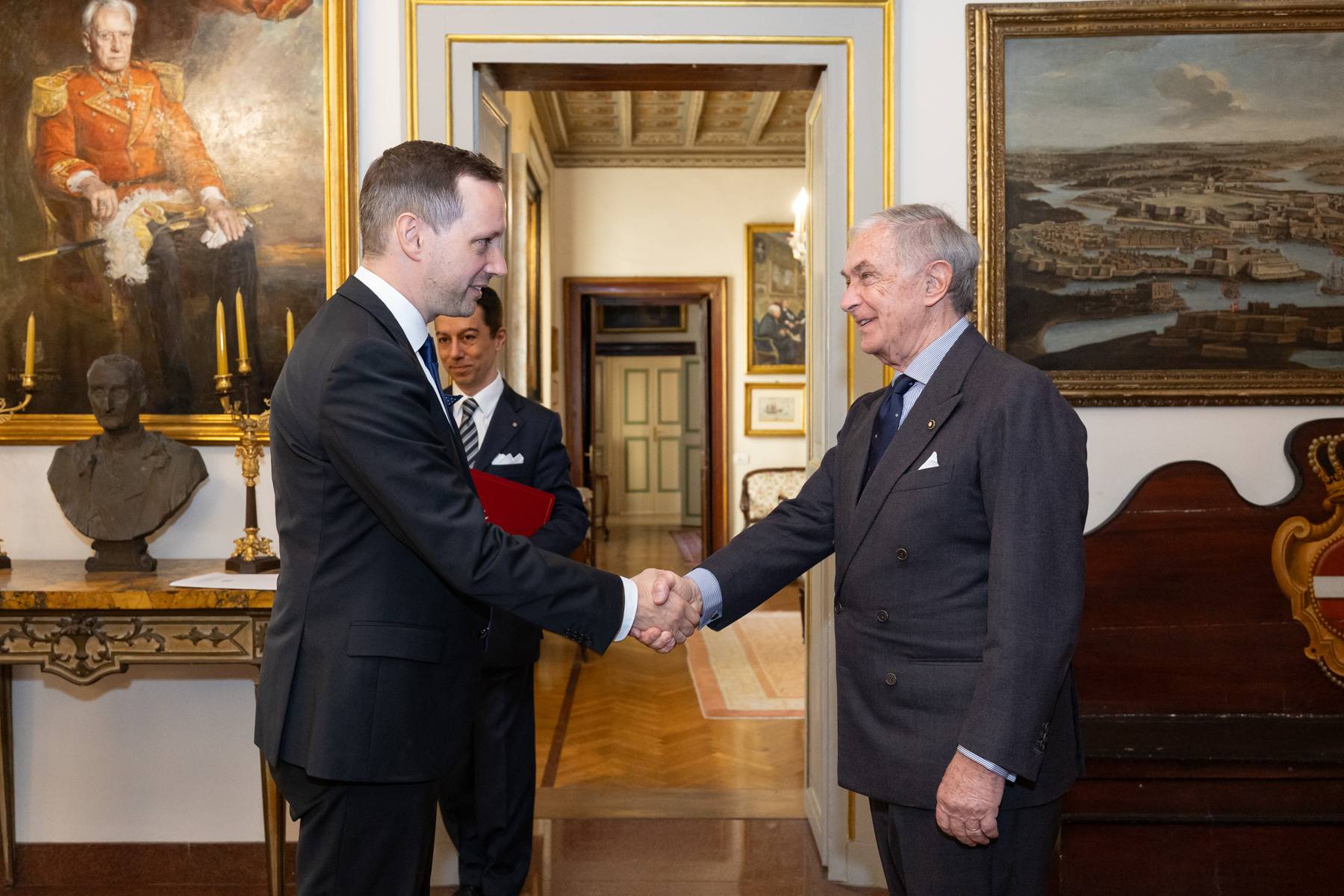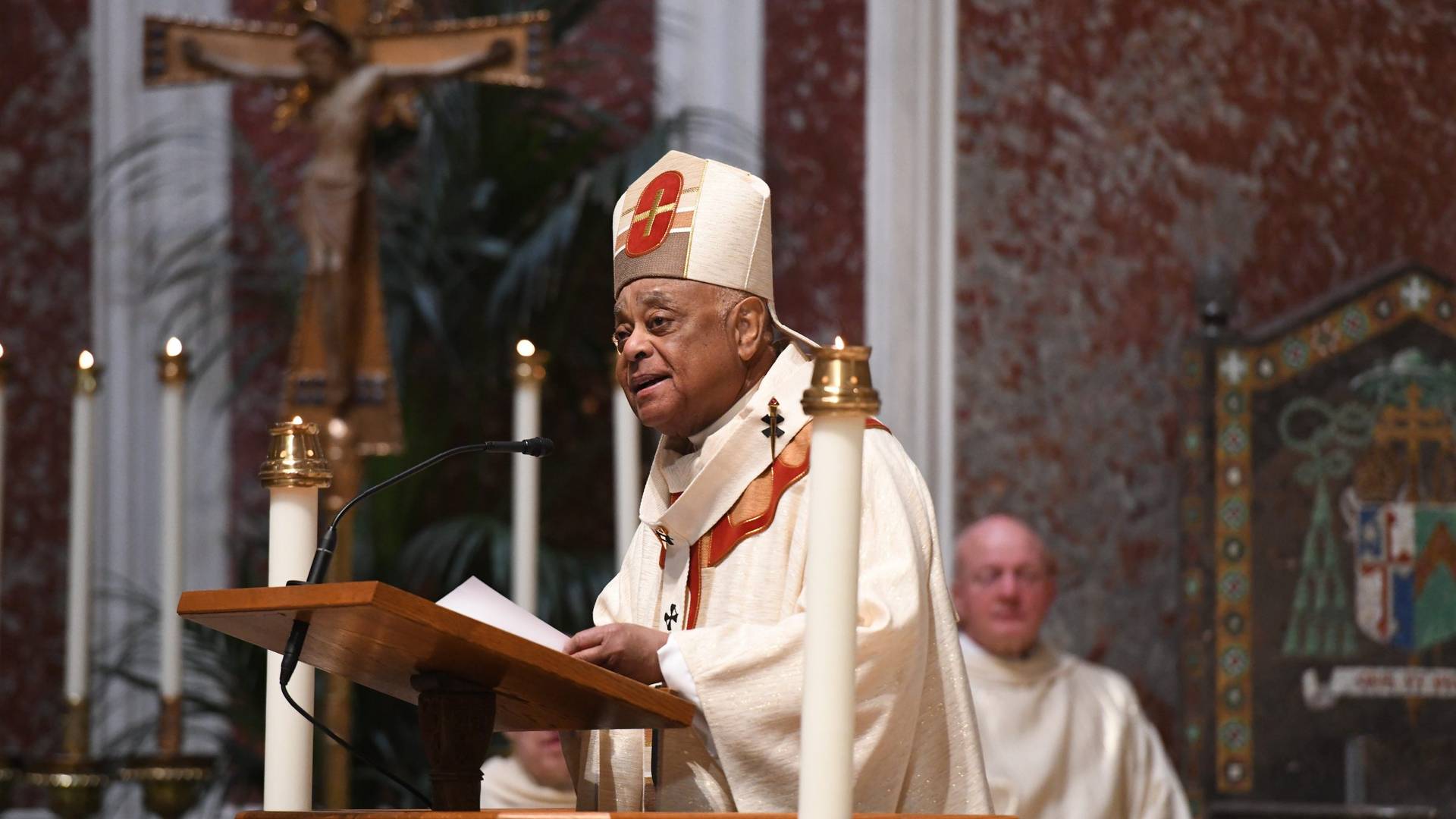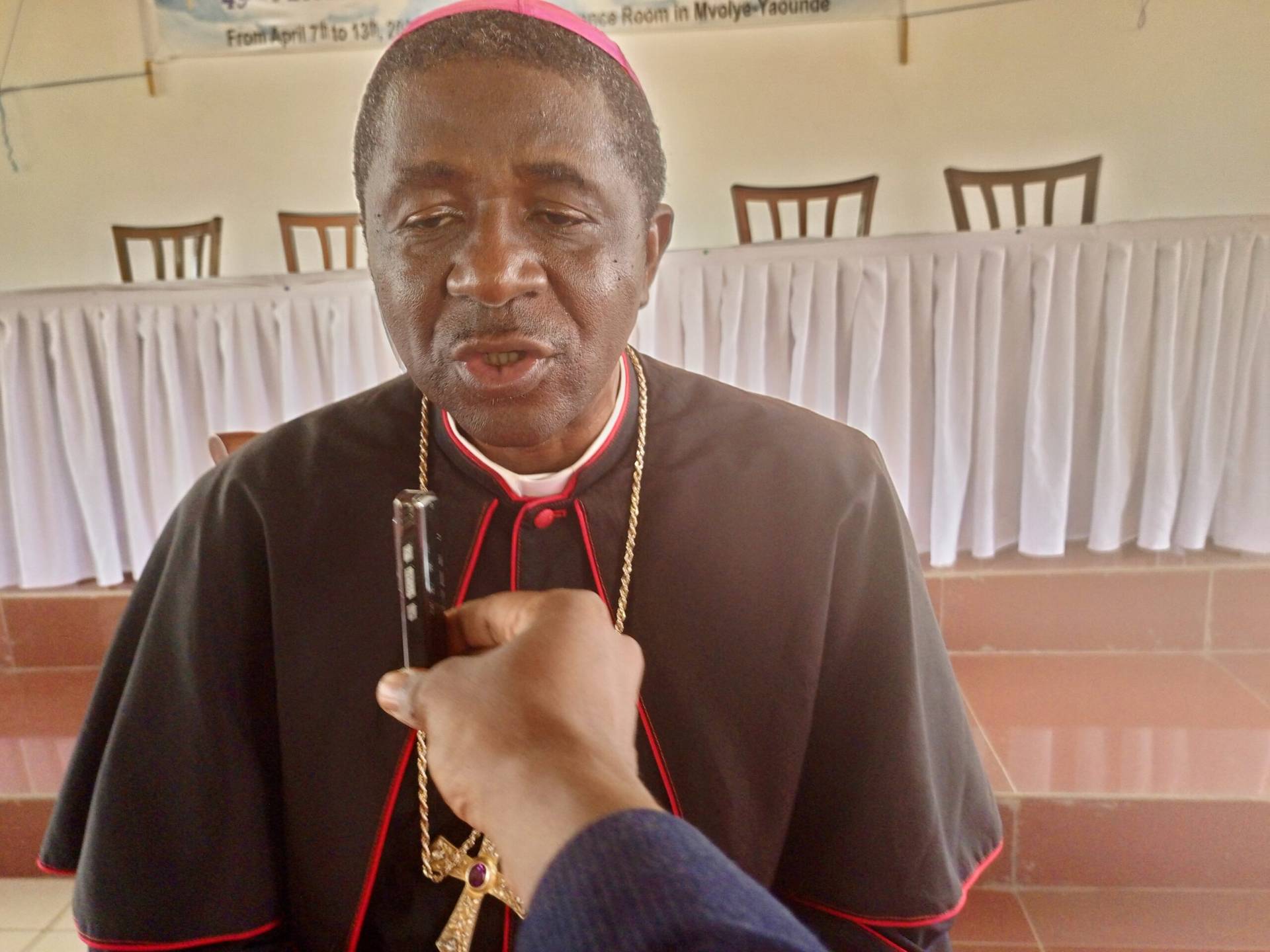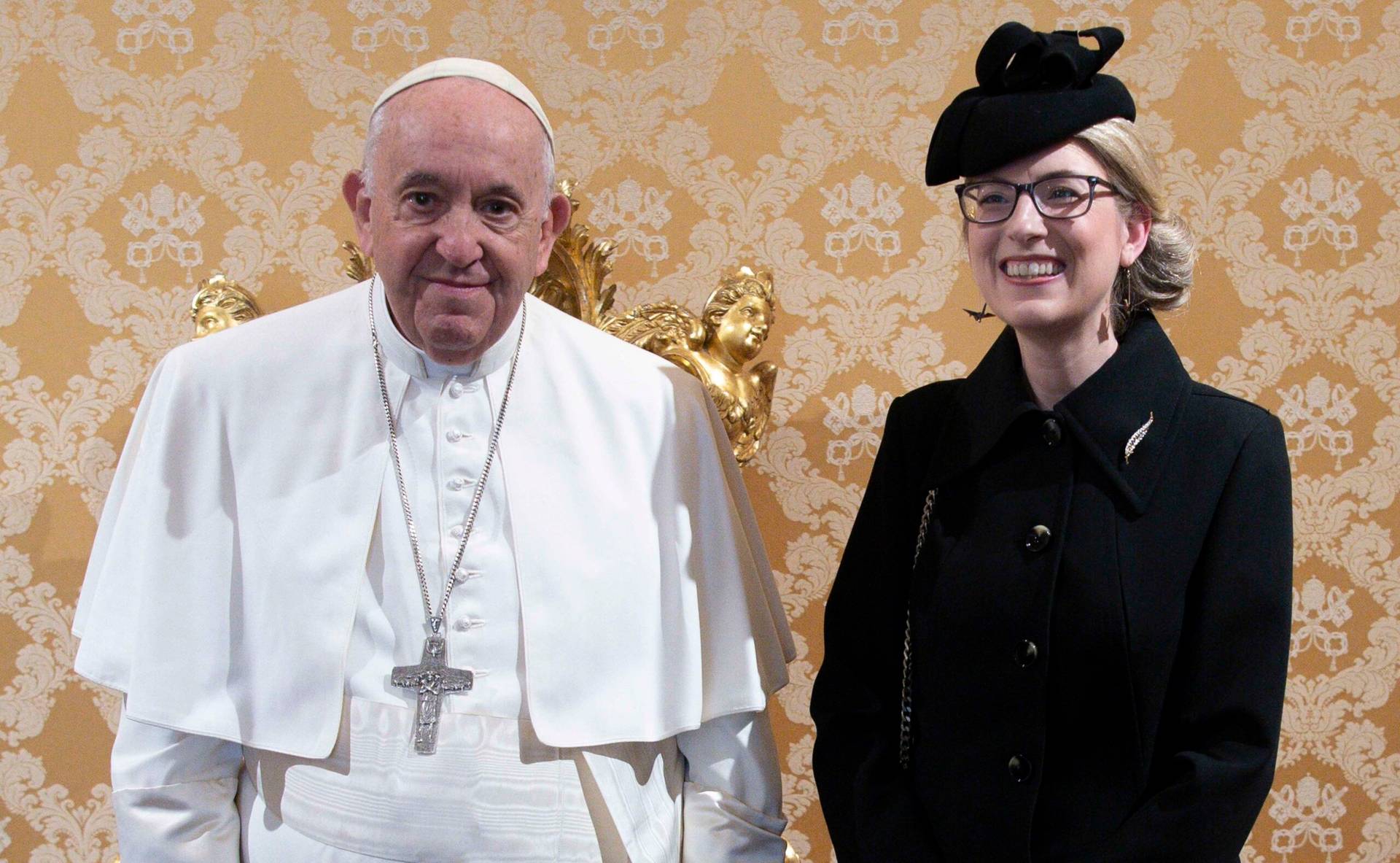[Editor’s Note: Father Roger J. Landry, a priest of Fall River, Massachusetts, is currently assigned to the Holy See’s Mission to the United Nations in New York. At the U.N., he says “you meet people from every country on the planet and come to appreciate the strengths and weakness of their culture and your own, you hear about best and worst practices on countless subjects, you’re exposed to the greatest and most corrupt of humanity in terms of some of the heroes and despots who come to speak and the reports that come in from across the world.” Landry says he is more dependent on his “Plan of Life” to grow in holiness in that environment. He speaks about it in his new book, Plan of Life: Habits to Help You Grow Closer to God which he discussed with Kathryn Jean Lopez.]
Lopez: “At a sacramental level, we are conformed to Christ in Baptism, but most of us, at a moral level, have a long way to go to become more like Jesus.” What is it about our Baptism that we should be taking more seriously on a daily basis?
Landry: As Pope Francis regularly reminds us, the date of our Baptism is the most important day in a Christian’s life, and we should know it and celebrate it annually. Beyond liberating us from sin and incorporating us into the Church and so many other important effects, Baptism integrates us into God’s life. God came to abide in us and allow us to abide in Him. This is the central reality of Baptism from which all of the other mind-blowing effects grow. A plan of life is meant to help us live this mutual abiding, as temples of God, more consciously and fruitfully.
Why does the snooze button matter so much, and why are you against it?
The second chapter in the book is about the “heroic moment,” when we choose to get out of bed when our alarm sounds. That’s the first battle of the day between our lower appetites and our higher calling. It’s when our will is often at its weakest, when we feel our limbs buried in concrete and our cells screaming for a few more minutes of shuteye.

But if we get out of bed and start the day then, we’re training ourselves to control our appetites rather than be controlled by them. If we don’t have the self-discipline to get out of bed, then it will be difficult to live the disciplined life of a Christian disciple. Getting out of bed on time helps us to get the day off to a better start, which includes giving us some time to pray in the morning before the day starts humming. It does presume, however, that we set an appropriate wake-up time, because if we’re sleep deprived and try to get up earlier than we need to, this moment will be much harder than it needs to be.
Why are you so confident a plan of life leads to “true happiness”?
A plan of life on its own doesn’t lead to true and enduring happiness, but, if it’s well lived, it helps us unite ourselves to the Lord better, and he is the source of lasting joy. It’s the open secret of many saints from all walks of life whom we believe now experience the happiness for which we’re made and for which our hearts will never cease to yearn. I urge people to try to live by a solid plan of life and see for themselves!
You write about “union with God” as being the “ultimate goal” of life. Is this really possible?
God says it’s possible! During the Last Supper, Jesus prayed to the Father for us to be one with Him and with each other — and we can be fully confident His prayers are heard. Catholics believe that Jesus seeks to bring about this union through Holy Communion, uniting us with Him and with others in a bond that has the power to help make us holy.
The ultimate goal for a Christian is meant to be eternal life with God; heaven is a communion of saints mysteriously within the eternal triune communion of persons who is Father, Son, and Holy Spirit. This possibility is already being experienced by the saints in eternity and anticipated here by those who allow God’s will to be done in them.
You quote St. John Paul II calling for a “genuine training in holiness, adapted to people’s needs.” You spent some time as a seminarian in Rome with him. What’s the influence he’s had on your priesthood and is there an untapped potential that remains in the lives of those of us, especially, who remember him – and a new generation we should be introducing him to?
I had the privilege to meet St. John Paul eleven times and receive his encouragement as a seminarian and priest. No one has had a greater impact on the way I look at God, the world, the priesthood, suffering, human love in the divine plan, and just about everything else — with the possible exception of Jesus — than the one whom I called Holy Father in my formative years from 8 to 35.
Now I regularly turn to him as an intercessor for so many needs, which I think has unleashed an even greater posthumous potential for good than he exercised in his super-fruitful pontificate. He would have never been able to do as much good as he did by winging it. He clearly had a plan to keep presence of God throughout the day and his plan featured, as we can see in many of his retreat notes and personal divulgences, all of the elements I describe and others.
How is living a Plan of Life working for you at the Holy See’s Permanent Observer Mission to the United Nations?
I have tried to live a good plan of life in every assignment of my priesthood, but I’ve found that I’ve depended on it more than ever working for the Church at the United Nations. The workload is intense, the days are long, and my schedule constantly gets revised by things that come up unannounced. The structure of a plan of life sustains me. It gives order to the occasional chaos. It helps me stay focused on the reality that I’m not alone and God is with me. The fixed encounters I have with Him over the course of living the plan of life each day helps to make awareness of the Lord overflow into my work so that I can better pray it, especially on those days when I have a lot of work to pray!
Has working for the Church at the U.N. been a learning experience?
Every day. Pope Paul VI, when he became the first pope to visit the U.N. in 1964, called the U.N. a “great school” where the education of people in the ways of peace takes place. Everyone who comes here, he said, is first a pupil and then a teacher about the many elements that are involved in the demanding, delicate, and dogged work of peace-building.
At the U.N., you meet people from every country on the planet and come to appreciate the strengths and weakness of their culture and your own, you hear about best and worst practices on countless subjects, you’re exposed to the greatest and most corrupt of humanity in terms of some of the heroes and despots who come to speak and the reports that come in from across the world.
It really is a demanding “universitas” that Paul VI said aspires to be in the temporal field what the Catholic Church seeks to be in the spiritual: Universal and unique, focused on the good of all. I am learning a great deal at many different levels.
What characterized the Holy See’s and your work there?
The four pillars of the U.N. — peace, development, human rights, and the promotion of keeping treaties and international law — are all things that Catholic social teaching has promoted from far before the U.N.’s birth, and so the Holy See has a lot to offer, bringing the light of the Gospel and the experience of 2,000 years seeking to promote the common good to the issues and questions of the day. The Holy See has no “national interest” to speak of compared to those of most Member States represented; for that reason, particularly with its Permanent Observer State status, it can better serve as salt, light and leaven before all the Nations, seeking to lift up the focus of the deliberations toward the common good on a wide variety of issues. Pope Francis has sent an extraordinary Nuncio as Permanent Observer, Archbishop Bernardito Auza, who has assembled a hardworking team of priests, religious, lay people, outside experts and interns that I’m privileged to be part of.
Kathryn Jean Lopez is senior fellow at the National Review Institute and editor-at-large of National Review.

















